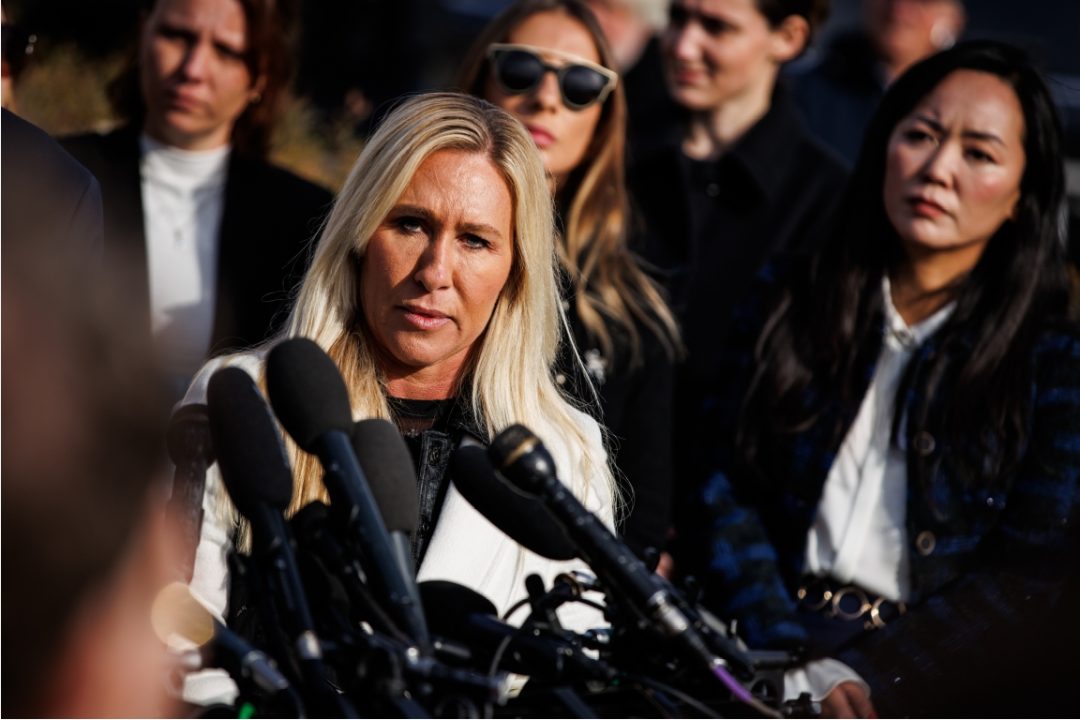
After a grueling, months-long battle to get 218 discharge petition signatures, the House voted 427-1 to pass a resolution to release the Justice Department’s files on Jeffrey Epstein. The Senate voted in favor of the release shortly afterward. The resolution heads to the desk of President Donald Trump, who said on Monday that he would sign it.
“Today is an extraordinary day,” Representative Thomas Massie (R-Ky.) said before the vote. Massie, along with Representative Ro Khanna (D-Calif.), spearheaded the effort to get the necessary signatures. The discharge petition procedure makes it possible for a measure to bypass House leadership and go straight to the floor for a vote. Massie added that voting for the resolution means that justice will triumph over politics, truth over deception, transparency over dark money, and partisanship will give in to bipartisanship. “It’s going to be a victory for survivors,” he said.
“Dangerously Flawed”
Despite voting for it, House Speaker Mike Johnson (R-La.) called the resolution “dangerously flawed.” He warned that it would “carelessly dump thousands of documents without proper protections for the innocent.” Johnson added that there was no way to amend the resolution “because the authors of the discharge will not allow it.” He urged Senate Majority Leader John Thune (R-S.D.) to address said flaws.
But Thune told reporters that the near-unanimous House vote meant he was unlikely to push for amendments.
As for President Trump, who fought the process all the way until Sunday, after the petition had already garnered the necessary signatures, he said on Monday that he was willing to sign the measure, according to reports.
The lone holdout was Representative Clay Higgins (R-La.), a former police officer. “I have been a principled ‘NO’ on this bill from the beginning. What was wrong with the bill three months ago is still wrong today,” he said in a social-media statement. He added:
It abandons 250 years of criminal justice procedure in America. As written, this bill reveals and injures thousands of innocent people — witnesses, people who provided alibis, family members, etc. If enacted in its current form, this type of broad reveal of criminal investigative files, released to a rabid media, will absolutely result in innocent people being hurt. Not by my vote. The Oversight Committee is conducting a thorough investigation that has already released well over 60,000 pages of documents from the Epstein case.
The Bill
The Epstein Files Transparency Act directs Attorney General Pam Bondi to release DOJ records on Epstein, his former sidekick Ghislaine Maxwell, and others who may have been tied to his pedophilic activities. But the measure includes some concerning carveouts. While it has reasonable clauses to redact information that would identify victims, it also comes with exceptions to transparency regarding anything that can be classified as vital to “national defense or foreign policy.” Nevertheless, the resolution’s drafters appear to have tried their best to anticipate any DOJ chicanery that may take advantage of those exceptions. It says that redactions “must be accompanied by a written justification published in the Federal Register and submitted to Congress” and that the AG “must declassify that classified information to the maximum extent possible.”
As promising as this may appear, this saga is far from over. And transparency is anything but a a given. Over the last few years, the American people have watched episode after episode of DOJ corruption, lies, and obfuscation. They’ve seen corruption in the courts, corruption in the White House, corruption in the legislative body. And when it comes to Epstein, the coverup has lasted for at least three decades. Last week’s files dump reminded the world that the man was connected to international power players in government, media, and the corporate world. What are the chances that his decades-long gross abuse was not widely known by everyone but the peasants?
The Fight Has Just Begun
Marjorie Taylor Greene (R-Ga.) warned on Tuesday that the fight has just begun. Surrounded by Epstein victims, she said the vote happened despite resistance from “the most powerful people in the world, even the president of the United States.” She said Trump called her a “traitor” for refusing to take her name off the discharge petition. Greene then forecasted the challenges that will likely emerge next:
But the real test will be: Will the Department of Justice release the files? Or will it all remain tied up in investigations? Will the CIA release the files? Will a judge in New York release the information?… And will the list of names that these women privately hold — and they hold it because of their fear in their heart of what will happen to them if they release it on their own — will that list of names come out? That’s the real test.




